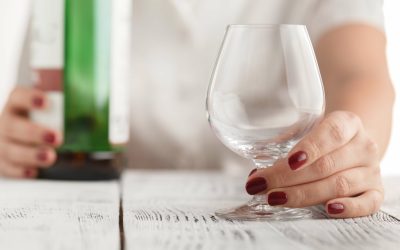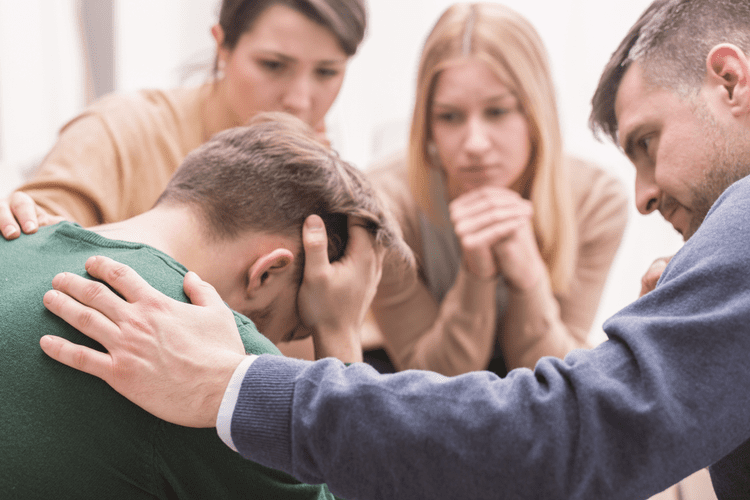I’ll then review some lifestyle strategies that I still use to this day to ensure a great night’s sleep. Those seeking restful sleep are advised to moderate their alcohol intake and consider alternative sleep aids and strategies for better https://ecosoberhouse.com/ sleep hygiene. Your doctor may also prescribe medications that can reduce withdrawal symptoms and cravings. Vivitrol (naltrexone), Campral (acamprosate), and Antabuse (disulfiram) have been FDA-approved to treat alcohol use disorder.
You don’t need alcohol to sleep
The idea of attempting to sleep without alcohol can cause anxiety, which can lead to more drinking, perpetuating the cycle of alcohol abuse. When you have sleep apnea, drinking can make the breathing interruptions last longer when you are asleep, leading to more awakenings. Studies have shown that people who drink and have sleep apnea are at a much higher risk of traffic accidents than people with sleep apnea who do not drink alcohol. Drinking to fall asleep can cause or worsen some health issues over time.
Physical Effects When You Stop Drinking
Insomnia and other withdrawal symptoms can happen as soon as the drug starts to leave the system. This can be as little as a few hours after the drug has last been consumed. If you wonder how long alcohol withdrawal last, the answer varies. The withdrawal then tends to last hours, lessening in severity as times goes on. However, this time can be quite challenging, especially for a suicidal alcoholic. A number of effective pharmacological and nonpharmacological treatment options exist to manage insomnia.

You May Feel More Productive

Hearing others’ stories nurtures hope and resilience, while offering practical advice on overcoming sleep challenges. The collective wisdom of support groups can be the key to conquering insomnia. If you’re dealing with depression, you may find that you feel both mentally and physically exhausted no matter how much rest you get or feel you’re getting. Other physical signs of withdrawal may include tremors, shakiness, nausea, vomiting, headache, sweating, heart palpitations, and more. Medical disclaimerYou must not rely on the information provided on our website as an alternative to medical advice from your doctor or other healthcare professionals.
If co-occurring substance use and insomnia are causing problems in your life or the life of a loved one, reach out to a representative to begin the journey towards recovery. Establishing good sleeping habits, also known as sleep hygiene, is an essential first step in good sleep. Ideally, you should wake up and go to bed at the same time each day.
- There are some symptoms of withdrawal, including nausea, tremors, and depression.
- Sure, at first you feel cozy, warm, and relaxed – perfect for sleep.
- But I find a tremendous amount of fulfillment in the idea that something I’ve learned can help others break free from the same horrible state of body and mind that once tortured me.
I vividly remember the day I began supplementing with magnesium during post-acute withdrawal. Circadian rhythms affect how the body responds to alcohol, depending on the timing of alcohol intake. Long-established research shows the body metabolizes alcohol differently at different times of day. Studies have shown the body is more effective at processing alcohol at certain times of the day than others. The gut and its microbiome are often referred to as the body’s second brain, and operate under powerful circadian rhythm activity. The circadian disruption that can result from alcohol consumption contributes to leaky gut syndrome, according to research.
Other Benefits When You Stop Drinking
If you’re a heavy drinker, you’re at an increased risk of developing certain diseases, such as cancer, heart disease, and stroke. However, when you stop drinking, your risk of developing these diseases decreases. Some people who stop drinking may experience delirium tremens (DT). This condition is serious and may lead to symptoms such as high blood pressure, tremors, and seizures.
New Study Shows CPAP Therapy Can Aid Memory Processes in the Brain
This is when the body is actively detoxifying, resulting in restlessness and unstable sleep patterns. This period lasts about a week for most people, barring those with severe addiction. In this article you’ll learn what drinking alcohol to fall asleep does to your brain and body. And we’ll tell you some healthier alternative ways of getting to sleep at night without alcohol. Withdrawal occurs when the body is adjusting to life without the substance.

When you stop drinking, your brain may rebound by increasing REM sleep, sometimes leading to an overload of vivid dreaming or even nightmares. This REM sleep rebound can be disruptive, leading to more fragmented sleep and daytime fatigue. Quit alcohol, and your body begins to readjust without its habitual depressant. This recalibration process can lead to a collection of symptoms known as alcohol withdrawal. These symptoms can range from mild to severe but often include significant disruptions to sleep. If you think you can’t sleep without alcohol, your best bet is to switch your reliance on alcohol for something else you can do each night, like drinking a cup of tea.
However, as we discussed earlier, normalizing your brain chemistry during the day can help you sleep better at night. My favorite amino acid of all is DLPA, which is not specifically used for insomnia. In fact, it’s not advisable to take DLPA before bed, because it is a combination of amino acids that are precursors for neurotransmitters that can make you feel euphoric and motivated. I have tried all of the above with good results, and I still use 5-HTP and L-theanine on a regular basis.
Alcohol misuse can lead to serious health problems like liver disease and cancer. So, giving up alcohol can help you to avoid can’t sleep without alcohol these potentially deadly diseases. People with sleep apnea should consider avoiding or reducing alcohol consumption.